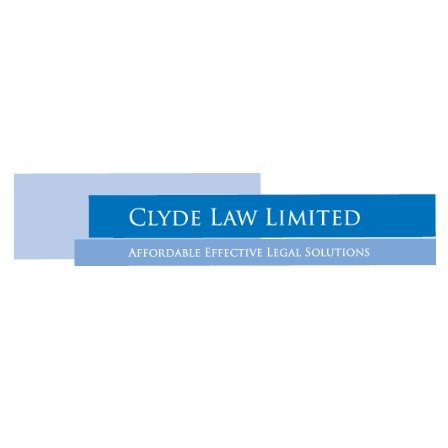Best Merger & Acquisition Lawyers in New Zealand
Share your needs with us, get contacted by law firms.
Free. Takes 2 min.
Or refine your search by selecting a city:
List of the best lawyers in New Zealand
About Merger & Acquisition Law in New Zealand
Merger and Acquisition (M&A) law in New Zealand involves the consolidation of companies or assets through various types of financial transactions. These include mergers, acquisitions, consolidations, tender offers, purchase of assets, and management acquisitions. New Zealand has a robust legal framework to regulate M&A activities, ensuring that they are conducted fairly and transparently, while promoting healthy competition and economic growth. The New Zealand Commerce Commission plays a crucial role in overseeing mergers and acquisitions to prevent any anti-competitive practices that might arise from such transactions.
Why You May Need a Lawyer
Engaging a lawyer experienced in M&A is crucial for navigating the complex legal landscape involved in these transactions. Common situations where you might need legal assistance include:
- Understanding regulations: M&A transactions are subject to numerous legal requirements, and a lawyer can help you to understand and comply with these regulations.
- Due diligence: A lawyer can conduct thorough due diligence to identify potential risks and liabilities associated with a transaction.
- Negotiating terms: Lawyers can help negotiate transaction terms to ensure that the deal is structured favorably and within legal parameters.
- Drafting agreements: Legal professionals are skilled at drafting and reviewing agreements to protect your interests and minimize risks.
- Handling disputes: In the event of disputes, a lawyer can offer legal strategies and represent you in litigation or arbitration proceedings.
Local Laws Overview
Key aspects of local laws relevant to M&A in New Zealand include:
- Commerce Act 1986: This act governs competition law in New Zealand, with special provisions to prevent mergers that significantly reduce competition in any market.
- Companies Act 1993: This legislation outlines the legal requirements for companies, including aspects of merger transactions, corporate governance, and more.
- Takeovers Code Approval Order 2000: Oversees the takeover of "code companies" in New Zealand, aiming to ensure fair treatment of shareholders.
- Overseas Investment Act 2005: Regulates investments by overseas persons, with requirements for certain M&A transactions that involve overseas entities.
- Investment screening: Certain transactions are subject to a review process to protect national interests and sensitive sectors.
Frequently Asked Questions
What is the role of the New Zealand Commerce Commission in M&A?
The Commerce Commission is responsible for enforcing competition laws related to mergers and acquisitions, ensuring that transactions do not lead to anti-competitive practices.
Do I need approval from the Commerce Commission for all mergers?
Not all mergers require approval. However, if a merger could substantially lessen competition, it must be authorized by the Commerce Commission.
How does the Takeovers Code affect M&A processes?
The Takeovers Code applies to certain companies and mandates principles for conducting takeovers, ensuring transparency and fairness for all shareholders involved.
Are there special requirements for foreign investors in M&A deals?
Yes, foreign investors may need to obtain consent under the Overseas Investment Act for certain transactions, particularly those involving sensitive assets or businesses.
What is due diligence, and why is it important?
Due diligence involves investigating and assessing a company’s liabilities, assets, contracts, and financial obligations to identify potential risks and inform decision-making in M&A deals.
Can mergers be challenged after the deal is closed?
Yes, post-closure challenges can occur, especially if there were misrepresentations, failure to disclose vital information, or breaches of the transaction agreements.
What are the tax implications of M&A in New Zealand?
M&A transactions can have significant tax implications, such as GST, income tax, and stamp duties. Engaging tax professionals in the process is essential for compliance and optimization.
How long does it typically take to complete a merger or acquisition?
The duration of an M&A process varies widely, depending on factors like deal complexity, the readiness of the parties, regulatory approvals, and due diligence.
Can M&A transactions impact employees?
Yes, employees can be affected, often through changes in management, restructuring, or changes in employment terms, which are governed by employment law protections.
What happens if a merger is rejected by the regulator?
If a merger is blocked by the Commerce Commission or other regulatory bodies, the parties cannot proceed with the transaction unless they address the issues causing the rejection.
Additional Resources
Here are some additional resources to consider:
- New Zealand Commerce Commission: Provides guidance on competition laws and merger applications.
- Takeovers Panel of New Zealand: Offers resources and guidance on takeover procedures and compliance.
- Ministry of Business, Innovation, and Employment (MBIE): Offers information on corporate and commercial law, including M&A regulations.
- Overseas Investment Office: Guides foreign investors on compliance with the Overseas Investment Act.
- Professional legal associations: Engaging with legal professionals through networks such as the New Zealand Law Society can provide valuable insights and guidance.
Next Steps
If you are considering a merger or acquisition, it is prudent to seek legal advice early in the process. Here are some steps to guide you:
- Identify your needs: Clearly define the goals and specific requirements of your M&A transaction.
- Engage with a lawyer: Contact a lawyer experienced in M&A in New Zealand to discuss your plans and seek preliminary advice.
- Prepare documentation: Gather all necessary documents and information that may be required for due diligence and legal compliance checks.
- Conduct due diligence: Work with your lawyer to perform a thorough evaluation of the potential transaction to identify risks and opportunities.
- Negotiate effectively: Use your legal counsel to negotiate terms that protect your interests and ensure regulatory compliance.
- Final Review: Proceed with the legal review of all documentation before finalizing any agreements or commitments.
- Submission and Compliance: Ensure all required submissions for regulatory approvals are completed and follow appropriate compliance protocols.
Lawzana helps you find the best lawyers and law firms in New Zealand through a curated and pre-screened list of qualified legal professionals. Our platform offers rankings and detailed profiles of attorneys and law firms, allowing you to compare based on practice areas, including Merger & Acquisition, experience, and client feedback.
Each profile includes a description of the firm's areas of practice, client reviews, team members and partners, year of establishment, spoken languages, office locations, contact information, social media presence, and any published articles or resources. Most firms on our platform speak English and are experienced in both local and international legal matters.
Get a quote from top-rated law firms in New Zealand — quickly, securely, and without unnecessary hassle.
Disclaimer:
The information provided on this page is for general informational purposes only and does not constitute legal advice. While we strive to ensure the accuracy and relevance of the content, legal information may change over time, and interpretations of the law can vary. You should always consult with a qualified legal professional for advice specific to your situation.
We disclaim all liability for actions taken or not taken based on the content of this page. If you believe any information is incorrect or outdated, please contact us, and we will review and update it where appropriate.
Browse merger & acquisition law firms by city in New Zealand
Refine your search by selecting a city.

















